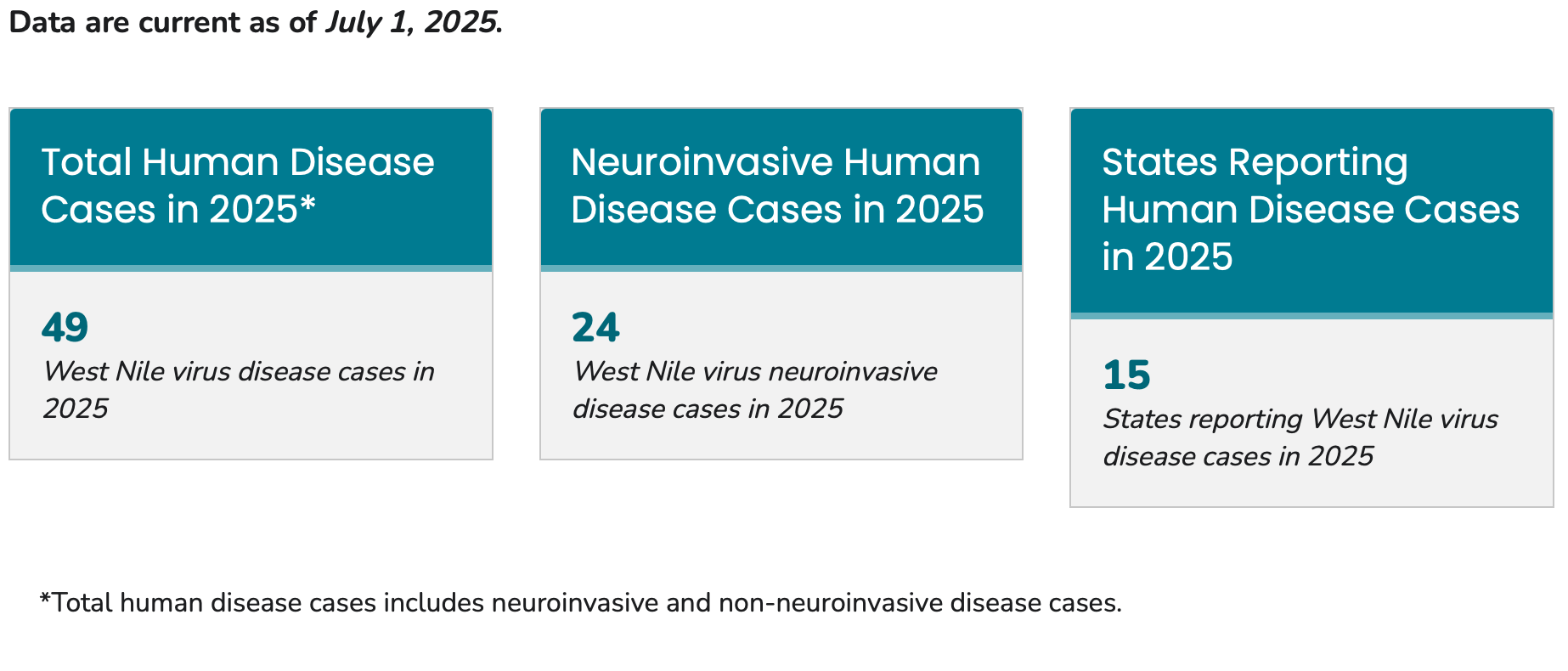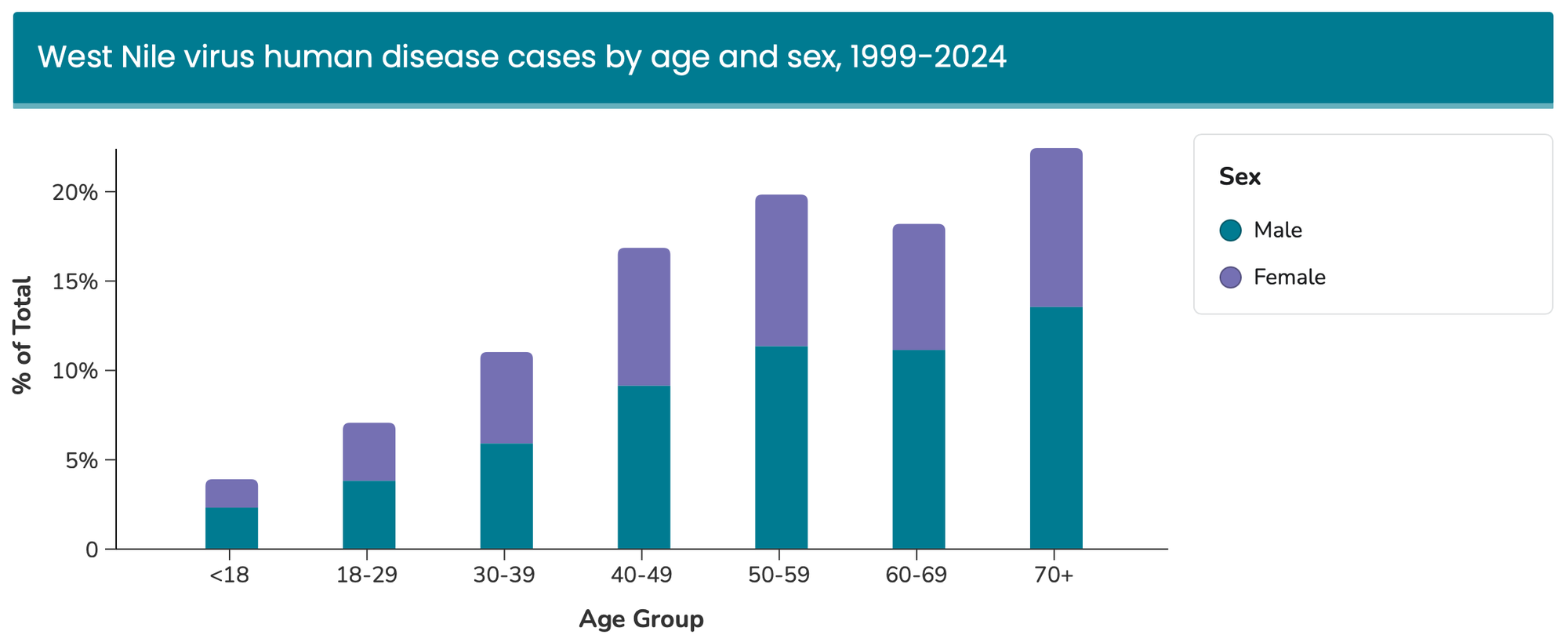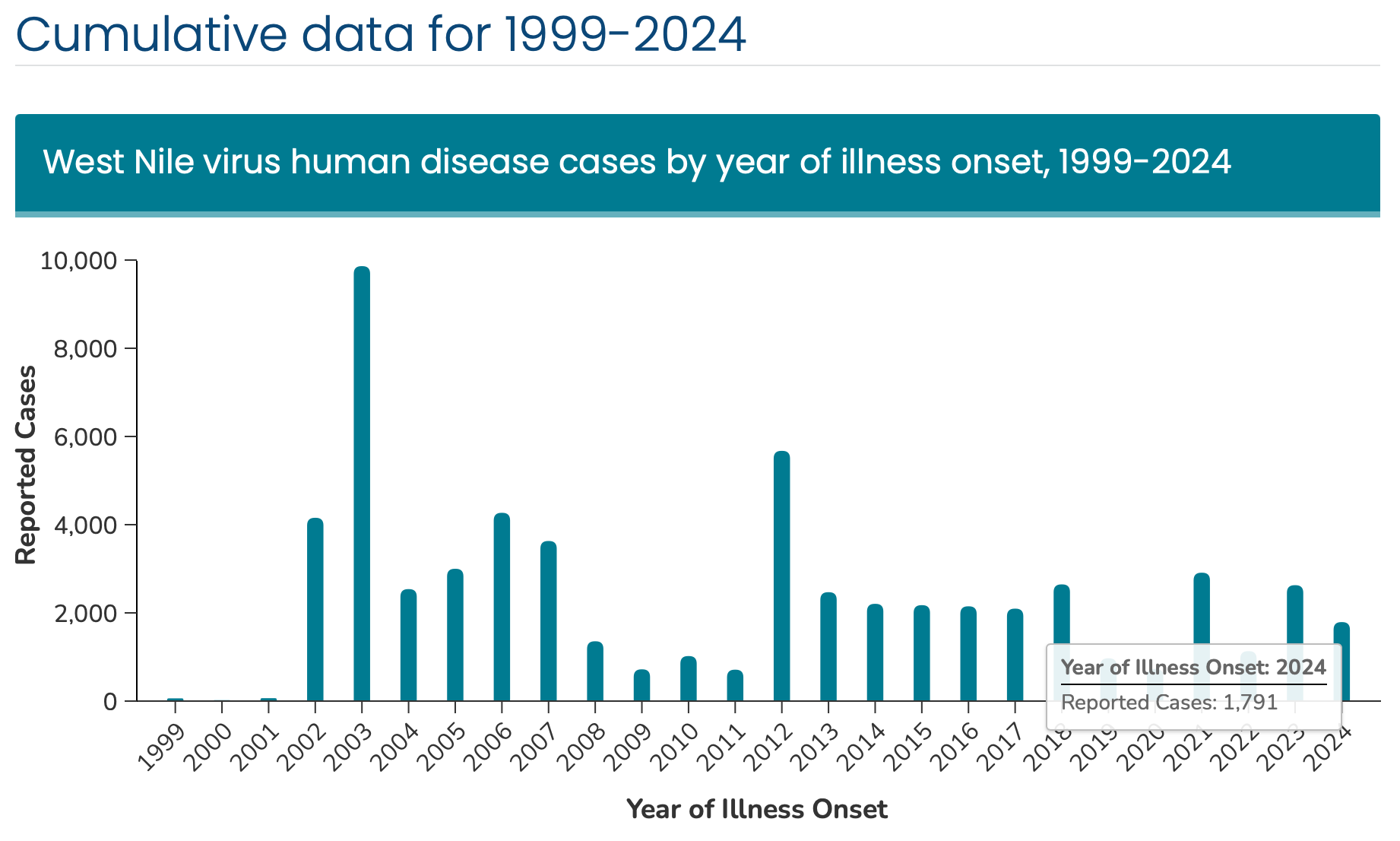

Oklahoma health officials are reminding residents to take precautions against West Nile Virus as mosquito surveillance pools across the state show increased activity over the past month.
The Oklahoma State Department of Health reports that positive mosquito pools have been identified in many regions of Oklahoma, prompting renewed warnings about the mosquito-borne disease that spreads primarily through the Culex mosquito species.
"We expect human cases of WNV every year," said Jolianne Stone, the State Epidemiologist. "Typically, summertime is the beginning of the WNV season in Oklahoma, so with more people participating in outdoor activities, there are increased opportunities for encountering infected mosquitoes."

West Nile Virus spreads through the bite of an infected mosquito that has previously fed on infected birds. The Culex mosquito, which serves as the primary carrier in Oklahoma, increases in abundance during mid- to late summer when temperatures are high and weather patterns are dry.
These conditions create ideal breeding environments for mosquitoes, particularly when combined with standing water sources around homes and communities. The virus can spread to humans, horses, and some other mammals when infected mosquitoes bite them.
Sign up for THE STILLWEGIAN
Stillwater Oklahoma's local independent online news. Stay informed with free weekly newsletters.
No spam. Unsubscribe anytime.
Health officials emphasize that prevention remains the most effective defense against West Nile Virus, as no vaccine or specific treatment drug exists for the illness. The department recommends several key measures to reduce mosquito exposure and breeding opportunities.
Residents should use insect repellent containing DEET, picaridin, or IR3535 on exposed skin and clothing when going outdoors, particularly between dusk and dawn when mosquitoes are more likely to bite. Insect repellent with permethrin should be used on clothing only.
Ready. Set. Shop!
Krazy Daze is Stillwater’s largest community-wide retail sales event! Make sure to enter the Ring Registers Promotion Giveaway, and DOUBLE your entries during Krazy Daze, July 16-20. For every $50 spent you can enter to win 1 of 5 $500 American Airlines gift cards!
Home protection measures include repairing or installing window and door screens to keep mosquitoes out of living spaces. Property owners should prevent items such as buckets, cans, pool covers, flower pots, children's toys, and tires from holding water to eliminate mosquito breeding sites.
Regular maintenance tasks can significantly reduce mosquito populations around homes. Pet owners should empty outdoor water bowls and refill them daily, while bird bath owners should scrub and refill these water features every three days.
Homeowners should clean leaves and debris from rain gutters regularly to ensure proper drainage and prevent water accumulation that creates breeding grounds for mosquitoes.

Most individuals infected with West Nile Virus will likely never experience symptoms following infection. When symptoms do occur, they are often mild and may include sudden fever, headache, and body and joint pain.
Recovery typically occurs within one to three weeks for those who develop mild symptoms. However, certain populations face greater risks for severe complications from West Nile Virus infection.
People older than 50 years, diabetics, and those experiencing uncontrolled hypertension are at greater risk of developing severe neurologic disease from West Nile Virus infection. When the disease affects the nervous system, it can cause confusion or disorientation, loss of consciousness, paralysis, neck stiffness, or coma.
Long-lasting complications of West Nile Virus disease can include difficulty concentrating, migraines, headaches, extreme muscle weakness and tremors, and paralysis of a limb. These severe symptoms underscore the importance of prevention measures, particularly for vulnerable populations.

The virus first appeared in Oklahoma in 2002, establishing itself in the state's environment due to favorable conditions for mosquito breeding and bird populations that serve as virus reservoirs. Since then, health officials have monitored West Nile Virus activity annually, with increased surveillance during summer months when transmission risk peaks.
Oklahoma's hot summers and periodic standing water after rains create ideal conditions for Culex mosquitoes to thrive and reproduce. The state's position along migratory bird routes also contributes to the virus's presence, as infected birds can introduce the virus to new mosquito populations.
The Oklahoma State Department of Health maintains surveillance programs to monitor mosquito populations and track virus activity throughout the state. This monitoring system helps officials identify areas of increased risk and issue timely public health warnings.
The department's ongoing surveillance and public education efforts aim to minimize West Nile Virus transmission while maintaining public awareness of prevention strategies that protect individuals and communities from this mosquito-borne disease.


